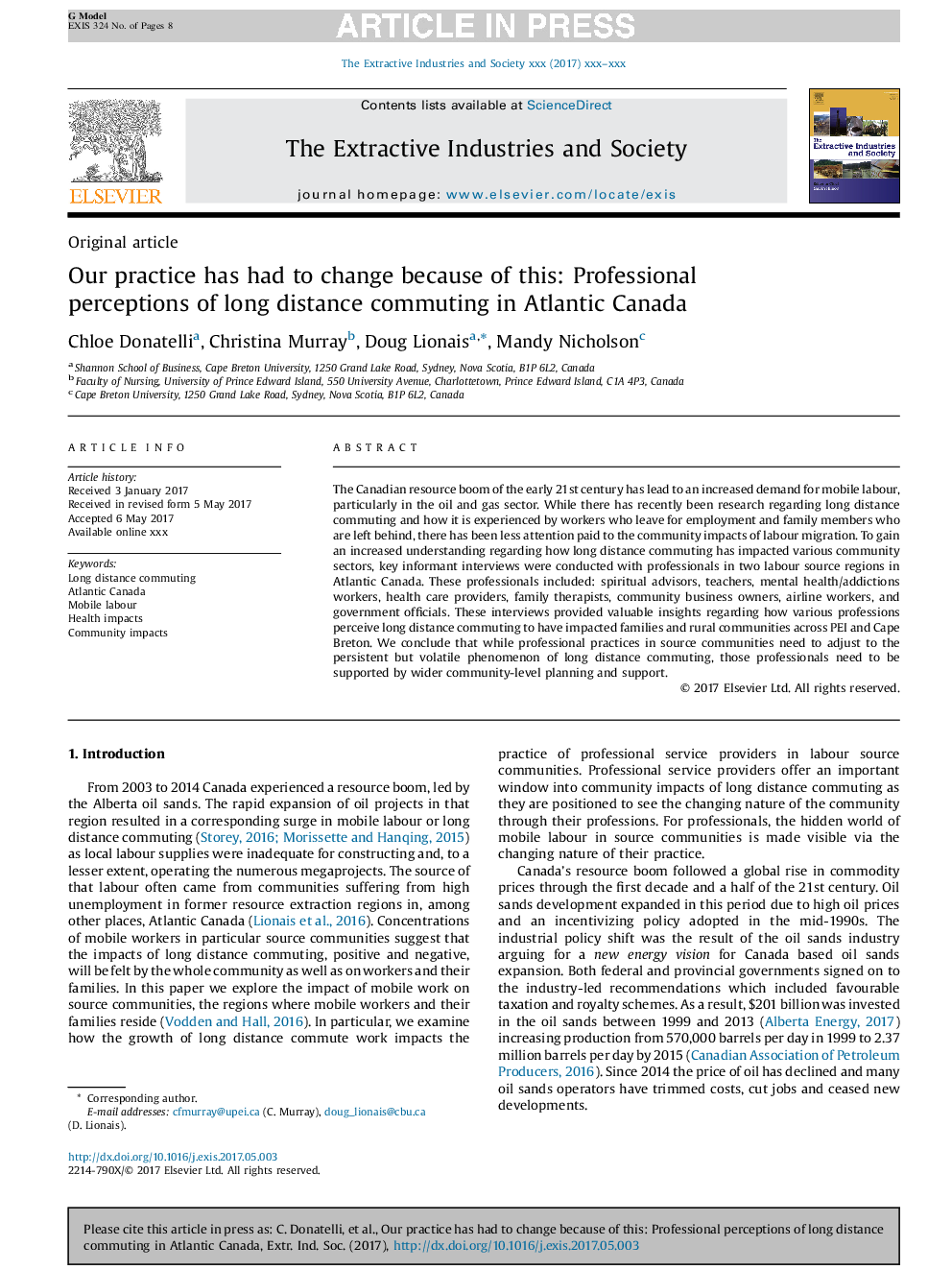| Article ID | Journal | Published Year | Pages | File Type |
|---|---|---|---|---|
| 7454393 | The Extractive Industries and Society | 2017 | 8 Pages |
Abstract
The Canadian resource boom of the early 21st century has lead to an increased demand for mobile labour, particularly in the oil and gas sector. While there has recently been research regarding long distance commuting and how it is experienced by workers who leave for employment and family members who are left behind, there has been less attention paid to the community impacts of labour migration. To gain an increased understanding regarding how long distance commuting has impacted various community sectors, key informant interviews were conducted with professionals in two labour source regions in Atlantic Canada. These professionals included: spiritual advisors, teachers, mental health/addictions workers, health care providers, family therapists, community business owners, airline workers, and government officials. These interviews provided valuable insights regarding how various professions perceive long distance commuting to have impacted families and rural communities across PEI and Cape Breton. We conclude that while professional practices in source communities need to adjust to the persistent but volatile phenomenon of long distance commuting, those professionals need to be supported by wider community-level planning and support.
Related Topics
Life Sciences
Environmental Science
Management, Monitoring, Policy and Law
Authors
Chloe Donatelli, Christina Murray, Doug Lionais, Mandy Nicholson,
